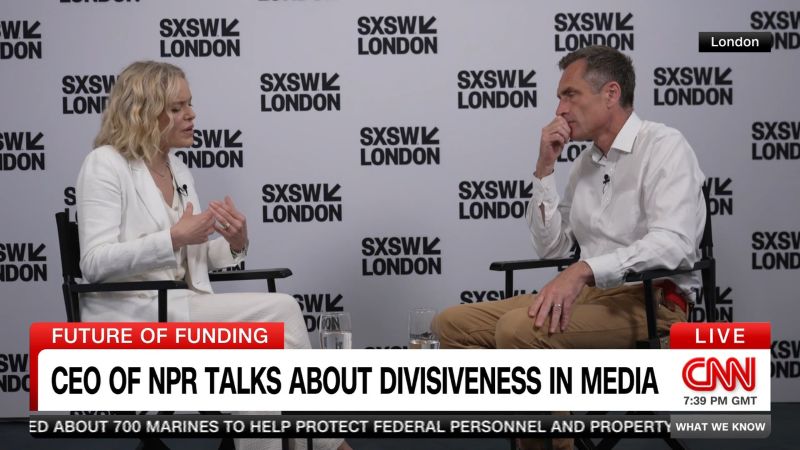The discussion about trust in media, particularly highlighted by NPR CEO Katherine Maher, sheds light on a significant issue facing news organizations today. This conversation, framed within the context of SXSW London, suggests a growing concern about public perception of media reliability and integrity.
Purpose of the Article
The intent behind this article is to address the prevalent issue of trust in the media landscape. By bringing attention to this topic through a reputable figure like Maher, the article aims to resonate with audiences who may feel disillusioned or skeptical about the information they receive from news outlets.
Public Perception
The article seeks to create awareness about the trust issues that not only NPR but the entire media sector is grappling with. By discussing the challenges of maintaining credibility, it aims to foster a dialogue among audiences about the importance of discerning reliable sources of information.
Potential Omissions
While the article focuses on trust, it may divert attention from other critical issues affecting the media, such as the impact of social media on news dissemination or the role of misinformation. By emphasizing trust, it risks overshadowing the complexities of the media ecosystem.
Manipulative Elements
There could be a degree of manipulation in how the narrative is framed. By positioning NPR as a beacon of trustworthiness amidst a broader crisis, it may unintentionally create an "us versus them" narrative, where other media organizations are viewed with suspicion. This tactic can reinforce existing biases among audiences regarding media consumption.
Credibility Assessment
The reliability of the information presented is contingent upon the credentials of the speaker and the platform. NPR is generally regarded as a credible source, which lends weight to Maher's observations. However, the subjective nature of "trust" in media can vary greatly among individuals, influencing how the article is received.
Societal Implications
The implications of this discussion are broad. If trust in media continues to decline, it could lead to increased polarization in public opinion and a growing reluctance to engage with news. This can further exacerbate societal divides and hinder informed decision-making at various levels, including political and economic.
Target Audience
This article appears to be aimed at a diverse audience that encompasses concerned citizens, media professionals, and individuals interested in the future of journalism. It resonates particularly with those who are critical of the current media landscape and seek to understand the underlying issues.
Market Impact
While the article primarily addresses media trust, its implications may extend to market dynamics, particularly for media companies. Stocks in media organizations could be influenced by public sentiment regarding trust, potentially affecting their market performance.
Global Context
In the realm of global power dynamics, trust in media plays a crucial role in shaping public discourse and influencing democratic processes. As misinformation spreads, the reliance on trusted news sources becomes even more critical, highlighting the article's relevance in today's context.
Use of AI
The possibility of AI involvement in crafting this article is plausible, especially in terms of data analysis and trend identification. AI models could have been used to sift through public sentiment data, shaping the narrative to address pressing concerns of media trust.
Conclusion on Manipulation
While the article raises important issues, it also walks a fine line regarding potential manipulation. By emphasizing trust while possibly downplaying systemic issues, it could steer public perception in a particular direction, ultimately serving specific agendas.
The information presented here reflects a critical examination of the themes discussed in the article, assessing its credibility and societal impact.
